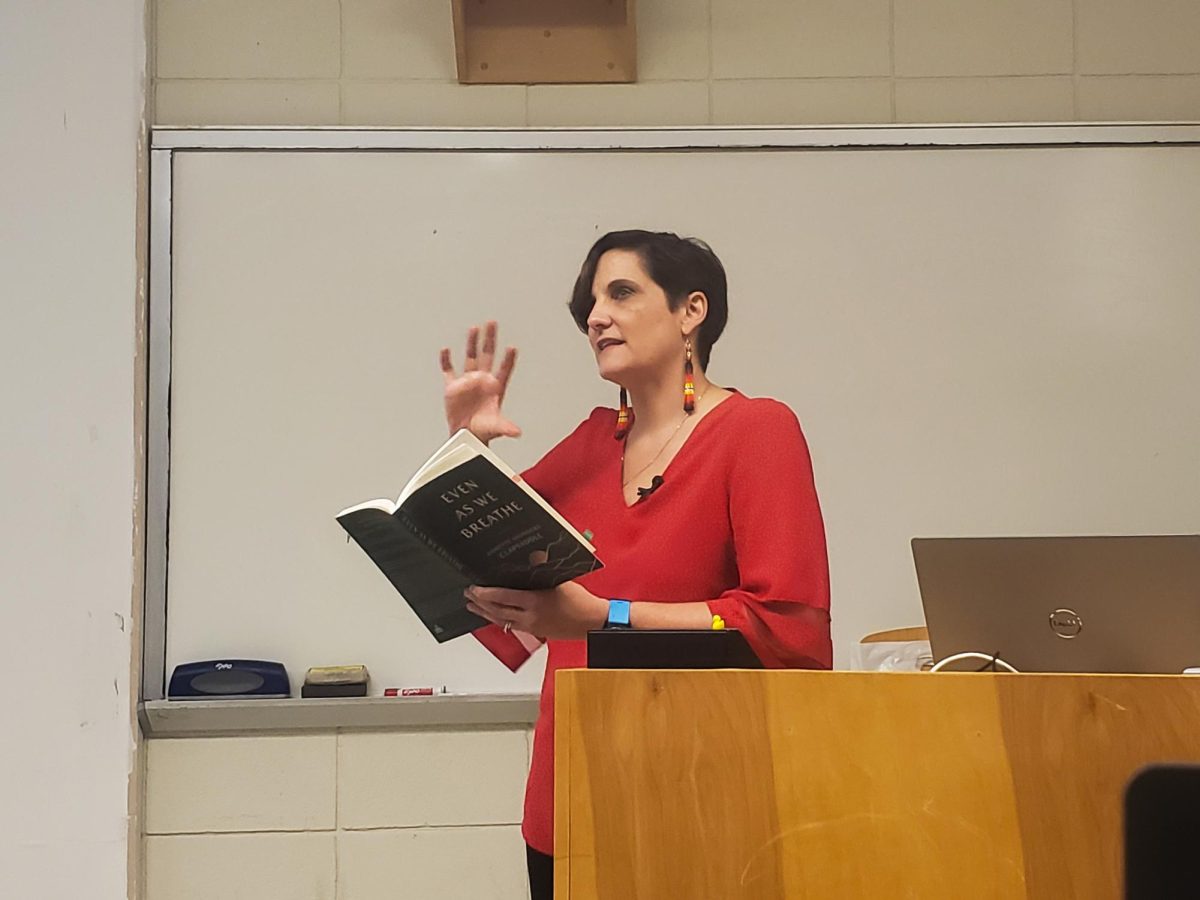Annette Saunooke Clapsaddle, author of the 2020 novel “Even as We Breathe,” came to Murray State on Tuesday, Sept. 12 for the creative writing program’s Reading Series. The Appalachian author’s witty, thoughtful, and informative presentation included background information, an excerpt reading, audience questions and a book signing.
The Reading Series, sponsored by the department of English and philosophy, hosts readings and lectures from authors outside of Murray. Last week’s event was backed by the Clinton and Mary Opal Moore Appalachian Writer’s Residency, who chose Clapsaddle as this year’s recipient.
Clapsaddle is a tribal member of the Eastern Band of Cherokee Indians and the first published author of her tribe. Her debut novel, “Even as We Breathe,” is set in World War II-era Asheville, North Carolina. The main character, Cowney, is a 19-year-old working at The Grove Park Inn, where diplomatic families were held in internment. Cowney soon gets caught up in a complicated mystery and is accused of being involved with the disappearance of a diplomat’s daughter.
Clapsaddle gave the audience insight into the inspirations and methods she used while writing the novel. She says Native Americans have been underrepresented and mischaracterized in literary history and has worked to disprove Native American stereotypes which have existed since the Colonial era. She said Indigenous people have also been framed as a thing of the past, especially with only depicting them as victims of displacement.
“I have always pushed back against rooting indigenous characters in the past primarily because so many people ask me to write about the Trail of Tears,” Clapsaddle said. “I’d rather not cement Cherokee people in the most tragic point of our entire existence over and over again, because our narrative is far more complex than tragedy.”
Clapsaddle said she felt she could do justice to the perspective of a Cherooke teenage boy because of her experience as a high school teacher. It was important to the author to show her students, who stood by her through the publishing process, a story they could relate to. She said her Native American students didn’t see themselves in a media-oriented world. She chose to write in an older Cowney’s perspective recalling the events because she says an uneducated and unsophisticated portrayal of Native men is an overused and damaging stereotype.
Clapsaddle is one of many authors hosted by the Reading Series and the Clinton and Mary Opal Moore Appalachian Writer’s Residency in recent years. With the residency’s renewed support of the program through 2026, University students can expect to meet more influential authors in the years to come.



























































































